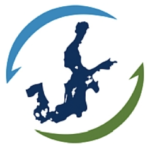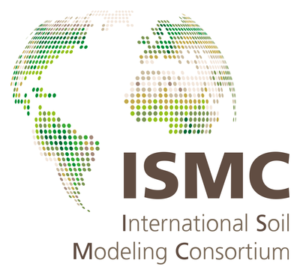The Baltic Earth Working Group on “Multiple drivers for Earth system changes in the Baltic Sea” has intended to provide an overview over the different human drivers and interrelations between them in the Baltic Sea region. The first Baltic Earth Workshop on this topic in Tallinn in 2018 set the stage and established a group of interested scientists which culminated in a writing team for the comprehensive Baltic Earth Assessment Report (BEAR) paper in Earth System Dynamics: “Human impacts and their interactions in the Baltic Sea region.”
After the completion of the first phase of Baltic Earth and with the onset of a new phase, the Baltic Earth Working Group on “Multiple drivers for Earth system changes in the Baltic Sea” will be revisited. This international Workshop shall set the scope for the new phase of this updated Baltic Earth Research Topic (RT) and bring together scientists and managers who are interested in collaborating in this continued Baltic Earth activity.
For more information visit https://www.gewexevents.org/meetings/2nd-baltic-earth-workshop-multiple-drivers/
 Baltic Earth and its predecessor BALTEX have been part of the global GEWEX family since 1992. Ali Nazemi of Concordia University, Montreal, Canada, is chairman of the GEWEX Hydroclimatology Panel and provides an overview over the various activities and benefits of this worldwide research programme.
Baltic Earth and its predecessor BALTEX have been part of the global GEWEX family since 1992. Ali Nazemi of Concordia University, Montreal, Canada, is chairman of the GEWEX Hydroclimatology Panel and provides an overview over the various activities and benefits of this worldwide research programme.
The Global Energy and Water Cycle Exchanges (GEWEX) was created more than 30 years ago within the framework of the World Climate Research Programme (WCRP). To date GEWEX has remained as a vibrant core project within the WCRP, aiming at addressing science gaps in the understanding of Earth’s energy and water cycles given a lack of information about the basic fluxes and associated reservoirs of these cycles. GEWEX activities are pursued within four panels, one of which being GEWEX Hydroclimatology Panel (GHP) that aims to understand and predict continental to local-scale hydroclimates for hydrologic applications. GHP itself consists of four categories of activities, including Regional Hydroclimatic Projects (RHPs), under which Baltic Earth is a flagship program, Crosscutting projects (CCs), Data Centers (DCs) and GHP Networks (GNs). Each of these activities play a unique and vital role in chasing GHP ambitions. This talk focuses on introducing current activities under these types of activities and demonstrates how, together and on their own, they can improve our understanding of various hydroclimatic processes and our ability to predict them across scales. The talk highlights the importance of a wider engagement between different communities and the necessity of international collaboration for making progress on understanding and on the monitoring of the changes in the energy and water cycles under ever increasing human pressures. A vision of the path forward for the coming decade, including the goals of GHP for the future, are also described.
- GEWEX – Global Energy and Water Exchanges
- GEWEX Hydroclimatology Panel (GHP)
- Ali Nazemi at Concordia University, Montréal, Québec, Canada.
- Register here for this Colloquium. Only Name and E-Mail address is required. Only registered participants will receive the zoom link to the colloquium.
For additional information, please visit https://baltic.earth/news/115071/index.php.en.
Future predictions of the Earth system are uncertain, whether spanning a few days or many decades. A key source of uncertainty across all these timescales are the approximations made when building the Earth System Model used to make the prediction. This is called model uncertainty.
This workshop will bring together different communities interested in model uncertainty, including, but not limited to: those working on weather prediction through climate timescales; those focused on physical parametrizations, the dynamical core, or their coupling and interaction; those using high-resolution km-scale models through complex Earth System Models; whether limited area or global.
The workshop will include invited talks, contributed talks, and posters. We will hold breakout groups to foster deeper discussion on the key workshop themes. We plan for the workshop to be partially hybrid – while all presentations will be in person, we will livestream talks and facilitate online Q&A. For more details on how you can participate, please see the ‘Registration’ page.
Key workshop themes
-
Representing model uncertainty including the use of ensembles; stochastic parametrisations; multi-model and perturbed parameter approaches; model error and uncertainty in data assimilation
-
Understanding and quantifying model error; observational constraints;
-
Model uncertainty across model hierarchies, across temporal scales, and across spatial scales; the use of unified or seamless approaches to improve and constrain predictions;
-
Resolution issue: the development of scale-aware parametrisation schemes; parametrisation across the grey-zone; km-scale modeling
-
The role and use of machine learning (ML) in all the above; model uncertainty in an ML context
The GEWEX-ISMC* SoilWat Initiative brings together two research communities to improve the representation of soil and subsurface processes in climate models. The soil and groundwater community and the climate modeling community (the latter represented by GEWEX) are working together to identify the most pressing challenges and topics related to this effort.
*International Soil Modelling Consortium
Meeting details will follow soon
The 7th International COsmic-ray Soil Moisture Observing System (COSMOS) Workshop will take place at Royal Hillsborough, a historic town just outside Belfast in Northern Ireland. The event will be a platform for young scientists and international experts in the area of soil moisture observation research to come together and share knowledge, experience, and expertise.
The cosmic-ray neutron sensing technique of COSMOS, which has evolved over the past decade, has catalyzed a paradigm shift in soil water content measurement. As a result of the significant progress made over the past 10 years, we are poised to transition “From Research to Operations.” This event provides the opportunity to gather again, as a community, to share progress and knowledge, and celebrate the successes of applications using the technology for the 7th International COSMOS Workshop.
The Micro2Macro workshop will develop the foundation of a new framework to confront and evaluate climate models using observations to improve our process-based understanding and strategically reduce climate projection uncertainty. The workshop is organized around four driving questions spread over 2.5 days of the meeting:
- What’s Wrong with Microphysics in Climate Models?
- Can We Even Observe Microphysics?
- How are Observations Being Used to Improve Models?
- How Can We Plan Future Process Observations to Reduce Climate Change Uncertainty?
Within these major topical questions, the Micro2Macro workshop solicits presentations related (but not limited) to topics described in detail on the “Sessions and Topics” page.
The school will be focused on the radiation theory and principles of satellite remote sensing, microphysics of clouds and precipitation as well as the fundamentals of retrieval methods, satellite imagery interpretation and products for science and operational meteorology. A special focus will be on sensor technology and satellite development, launch, and in-orbit management.
The initiative is open to Ph.D. students in physical, environmental, atmospheric, or related sciences, and early career operational meteorologists and researchers. Applications from talented M.Sc. students will be accepted as well. The training program will be organized through the scheme “frontal lectures – in-depth labs”.
ESA Water Vapour Climate Change Initiative (WV_cci) 2nd User Workshop
Following the success of the first ESA Water Vapor Climate Change Initiative User workshop, we are pleased to announce a 2nd User workshop.
Dates: 14th to 16th October 2024
Topic: Challenges around atmospheric water vapour
Location: Forschungszentrum Jülich (Germany) and online
Background:
The Water Vapour Climate Change Initiative (WV_cci), is a project of the European Space Agency (ESA) with the overall goal to generate climate data records (CDRs) of atmospheric water vapor for use in climate applications. The project develops, validates, and releases quality-controlled, long-term CDRs of total column water vapour (TCWV) and water vapor profile across troposphere and stratosphere (2D, 3D). More details on the project are available at: https://climate.esa.int/en/projects/water-vapour/.
The 15th Annual Catchment Science Summer School will run Sept 1-6, 2024 live and in person at the University of Birmingham, UK. The course is designed for PhD students and Post Docs in catchment science. The course is taught by Jeff McDonnell, Chris Soulsby, Jan Seibert, Ilja van Meerveld, David Hannah, Stefan Krause and many others. It is co-sponsored by the Global Institute for Water Security at the University of Saskatchewan, the University of Aberdeen, the University of Zurich, and Humboldt University. Course details and registration can be found at: https://water.usask.ca/hillslope/teaching/catchment-summer-school/home.php.
The 2024 Annual Workshop of the International Network for Alpine Research Catchment Hydrology (INARCH) will take place from October 14 – 19, 2024. The meeting will be held in Lanzhou and Zhangye, in central China and the Qilian Mountains, and will be hosted by Dr. Tao CHE and Dr. Xin Li, Chinese Academy of Sciences.


